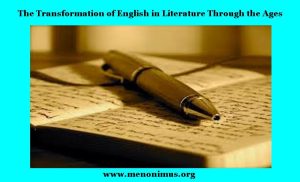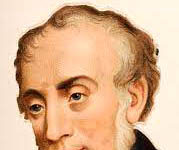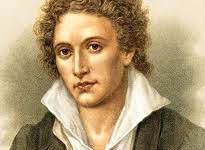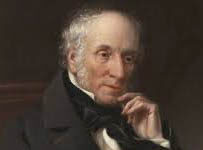The Transformation of English in Literature Through the Ages
The Transformation of English in Literature Through the Ages
The Transformation of English in Literature Through the Ages
Introduction
The English language has undergone profound transformations throughout its literary history, reflecting shifts in culture, society, and the very essence of human experience. This essay endeavors to provide an exhaustive examination of how English has evolved within the realm of literature over the ages. The study explores the language’s metamorphosis from its Old English roots to its contemporary state, examining how these changes have influenced the structure, style, and thematic content of literary works. Transformation of English in Literature
Old English Literature: The Birth of English Expression
The earliest recorded form of the English language, known as Old English, was in use from the 5th to the 11th century. This period saw the composition of epic poems like “Beowulf” and religious texts such as “The Dream of the Rood.” Old English is characterized by its complex inflections and intricate poetic forms, such as alliteration. The language was heavily influenced by the Germanic languages and Latin, resulting in a rich, expressive tongue that is markedly different from modern English.
One of the most significant transformations in Old English literature was the infusion of Christian themes, a reflection of the conversion of the Anglo-Saxons to Christianity. This shift is exemplified in “The Dream of the Rood,” where the cross becomes a central symbol of Christian salvation. The language, steeped in paganism, adapted to convey new religious ideas, marking a profound transformation in the linguistic and thematic dimensions of literature. Transformation of English in Literature
Middle English Literature: The Age of Chaucer and the Birth of Vernacular Literature
The Middle English period, from the 12th to the 15th century, witnessed the emergence of English as a language of literary expression. Geoffrey Chaucer’s “The Canterbury Tales” exemplifies this transformation. The Norman Conquest in 1066 introduced French influences into the English language, resulting in the development of Middle English. The language became more accessible and versatile, leading to a broader range of themes and subjects in literature.
Chaucer’s work is notable for its vivid characterizations, diverse narrative styles, and the use of the vernacular, making it more relatable to a broader audience. Middle English literature marked a significant shift towards English as a language of literature, mirroring the gradual shift from Latin and French in scholarly and courtly contexts. Transformation of English in Literature
Early Modern English Literature: Shakespeare and the Renaissance
The Early Modern English period, spanning the late 15th to the 17th century, saw the emergence of the English Renaissance, characterized by an explosion of creativity in literature and the arts. William Shakespeare’s works, including “Hamlet” and “Romeo and Juliet,” are quintessential examples of this era. During this time, English underwent a substantial transformation in its structure and vocabulary, with the influences of Latin and Greek becoming more prominent.
Shakespeare, the master wordsmith, contributed to the expansion of the English language by coining new words and phrases, many of which are still in use today. His plays and sonnets showcased the evolution of English into a more dynamic, flexible, and expressive medium. Furthermore, the period marked a significant transition from the medieval worldview to the more humanistic and individualistic outlook of the Renaissance, affecting the themes and characters in literature. Transformation of English in Literature
18th and 19th Century English Literature: The Age of Enlightenment and Romanticism
The 18th century, also known as the Age of Enlightenment, brought about significant changes in English literature and the language itself. The Enlightenment thinkers and writers, like Alexander Pope and Jonathan Swift, favored clear, concise language and satire, which contrasted with the elaborate styles of the past. This era’s prose and poetry were marked by clarity and rationality, reflecting the Enlightenment’s emphasis on reason and intellectual progress.
The Romantic period, in the late 18th and early 19th centuries, represented a response to the Enlightenment’s rationalism. Writers like William Wordsworth and Samuel Taylor Coleridge embraced the emotional, the sublime, and the imaginative, which led to a richly expressive and emotionally charged language. The influence of Romanticism on English literature not only transformed the style and themes but also contributed to the evolution of the English language towards a more emotive and introspective form. Transformation of English in Literature
Victorian and Modernist English Literature: The Industrial Revolution and Beyond
The Victorian era, spanning much of the 19th century, was marked by the profound changes brought about by the Industrial Revolution. Writers like Charles Dickens and the Brontë sisters chronicled the social and political issues of the time. The language of literature in this period evolved to depict the complexities of the era, its industrial progress, social inequality, and moral concerns. It was marked by a focus on realism, often through intricate character development and meticulous descriptions.
The Modernist era, which extended from the late 19th century into the 20th century, witnessed an avant-garde transformation in English literature. Writers like James Joyce and Virginia Woolf experimented with narrative techniques and language itself. Modernist literature sought to capture the fragmented and bewildering nature of modern life, pushing the boundaries of language and narrative, resulting in a more fragmented, abstract, and experimental style. Transformation of English in Literature
Contemporary English Literature: Globalization and Diverse Voices
Contemporary English literature, spanning from the mid-20th century to the present day, has seen the English language evolve in response to globalization and the influence of a multitude of cultures. Post-colonial literature, for example, often blends English with indigenous languages, resulting in a hybrid form of expression. Writers like Salman Rushdie and Chinua Achebe have demonstrated how English can adapt and incorporate diverse linguistic influences while exploring themes of identity, diaspora, and cultural conflict.
The use of English in contemporary literature reflects the globalized world we live in, with writers and texts from various linguistic backgrounds contributing to the ever-evolving nature of the language. This transformation emphasizes the adaptability of English to convey the experiences and perspectives of people from diverse cultural and linguistic backgrounds. Transformation of English in Literature
Conclusion
The transformation of English in literature through the ages is a testament to the dynamic nature of both the language and human expression. From Old English’s roots in Germanic and Latin influences to its contemporary state as a global lingua franca, English has adapted and evolved to reflect the changing needs and aspirations of society. Each era of literature has left its unique mark on the language, shaping its structure, style, and thematic content.
The evolution of English in literature not only showcases the language’s adaptability but also mirrors the broader societal changes and cultural shifts that have taken place over the centuries. It is through the study of these literary transformations that we gain valuable insights into the development of the English language and the human condition itself, providing an enduring source of knowledge and inspiration for generations to come. 0 0 0.
The Transformation of English in Literature Through the Ages.
You May Like:
Additional Searches:











